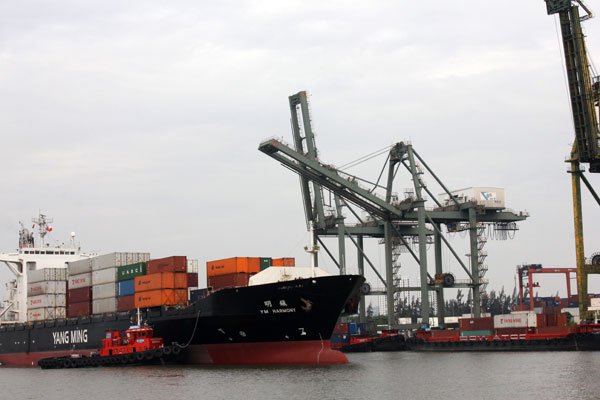Vietnam had faced a trade deficit of US$1.21 billion in the year to mid-February, which resulted from shipments of some key export earners dipping, according to data of the General Department of Customs.

A container ship is seen at a port in Vietnam. Vietnam had faced a trade defi cit of US$1.21 billion in the year to mid-February
The country’s total export and import turnover in the first half of this month was US$14.22 billion, a 10.9% rise against the previous half.
The total in the first one month and a half reached around US$41.65 billion, up 25% over the same period last year.
The foreign direct investment (FDI) sector exported US$9.3 billion worth of goods in the first half of this month, a 13.1% increase against the previous half.
As of February 15, its import-export turnover reached nearly US$26.89 billion, up 25.2% year-on-year.
The sector generated a trade surplus of over US$1.55 billion in the year to the middle of this month.
Vietnam registered outbound sales of US$5.89 billion in the first half of this month, falling 15.9% over a half month earlier.
The export decline resulted from strong slides in key export products. Apparel fell by 53.4%, or US$625 million; footwear by 29.3%, or US$159 million; wooden products by 44.3%, or US$133 million; handbags, wallets, suitcases, hats and umbrellas by 57.4%, or US$90 million; and vehicles and parts by 28%, or US$82 million.
But exports in the year to mid-February reached US$20.22 billion, up 18.5% from the year-ago period.
Imports in the first half of this month totaled US$8.34 billion, up 43.3% over a half month earlier. As such, the country’s import bill in the year to mid-February amounted to US$21.43 billion, a year-on-year rise of 31.7%.
Import of computers, electronics and components surged 38.7% (or US$387 million) compared to the previous half month; machinery, equipment and parts 35% (US$352 million); plastic materials 87.9% (US$151 million); iron and steel 52.1% (US$138 million); phones and phone parts 28.4% (US$115 million).
Import of fuels decreased 30.9% (or US$94 million), 69.3% (or US$25 million) in soybeans, and 19.1% (or US$15 million) in corn.
SGT